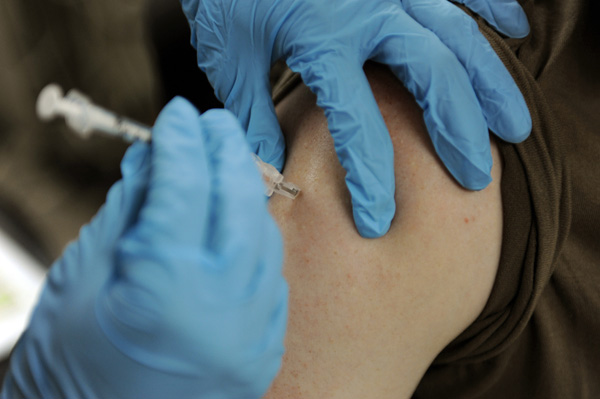Doctors Without Borders are in the news again. This time, the humanitarian group are attempting to prevent pharma giant Pfizer from filing a patent on their pneumonia vaccine in India. The doctors say that patenting the vaccine would prevent generic drugmakers from producing more affordable versions, thereby stopping developing nations from accessing the vaccine.
The world’s poorer countries are dependent on India’s generics drug industry to provide them with less expensive drugs and vaccines. As a medical charity, Doctors Without Borders also relies on the availability of cheap medicines to treat as many disadvantaged patients as possible.
“To make sure children everywhere can be protected from deadly pneumonia, other companies need to enter the market to supply this vaccine for a much lower price than what Pfizer charges,” said Manica Balasegaram, executive director of the charity’s access campaign. According to a statement released by Doctors Without Borders, Pfizer’s Prevnar 13 is the top-selling vaccine worldwide, and generated $6 billion in sales last year alone.
It’s estimated that pneumonia is responsible for almost one million deaths each year, and is currently the number one cause of death among children five and under, in India. Under the Global Alliance for Vaccines and Immunisation (GAVI) – a non-profit organization focused on increasing access to vaccines in poorer countries – Pfizer has discounted the price of Prevnar 13 for select countries. According to GAVI’s website, 58 countries are able to get the vaccine at a reduced cost.
Doctors Without Borders pointed out that there are still developing countries that can’t afford to pay full price for the vaccine. Under GAVI, India is eligible to access the vaccine, however they have so far not chosen to do so.
Pfizer’s price for the vaccine is $170 per child in India, while GAVI provides the shot for just $10 per child. According to Doctors Without Borders, the Serum Institute of India has offered to manufacture the drug and supply it to the medical charity for $6 per dose.
The humanitarian organization has reportedly filed a pre-grant opposition in an attempt to block Pfizer’s proposed patent in India. In 2007, Pfizer first tried to patent Prevnar 13 in India.
Doctors Without Borders are opposing the patent because the process used by Pfizer to make the vaccine is “too obvious to deserve a patent under Indian law.” The medical charity’s decision came after “years of fruitless negotiations with Pfizer to lower the vaccine’s price for use in its projects.”












Join or login to leave a comment
JOIN LOGIN